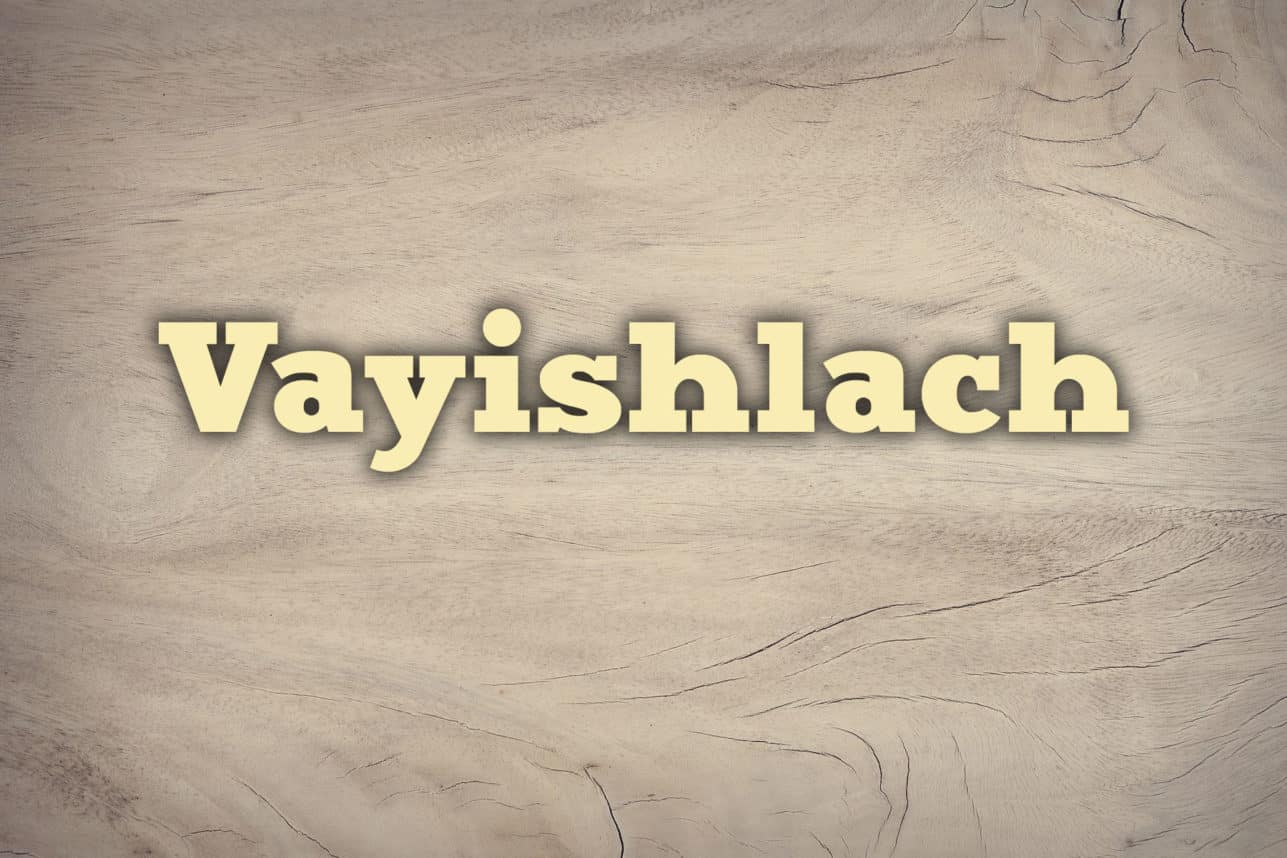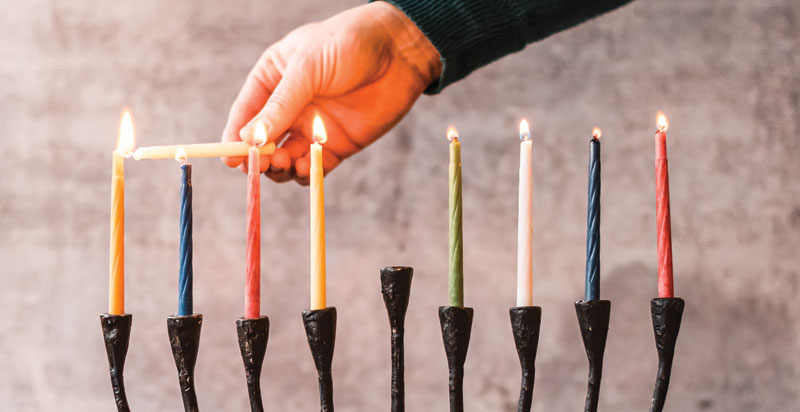"One People, Two Worlds" (Schocken Books, $26) the title of the current book by a Reform rabbi and an Orthodox rabbi exploring the issues that divide them, proved to be all too accurate this month when the Orthodox author, Yosef Reinman — under pressure from religious leaders in his Charedi community — canceled a 17-day, 17-city book tour that was to begin Sunday with co-author Ammiel Hirsch.
The news is more disappointing than surprising, given the intense resistance in the Charedi world to any hint of legitimizing Reform ideology. It also speaks to the level of fear of ostracism within the Charedi community, where rabbinic hierarchy is strong and widely revered.
Sadly, this is but the latest case of a prominent Orthodox rabbi bending to pressure from the religious right. Just last month, a book by the chief rabbi of Great Britain, Jonathan Sacks, was labeled as heresy by several Orthodox rabbis in Manchester because it espouses the belief that Judaism does not hold the only religious truth. One of the offending passages in "The Dignity of Difference" states that "no one creed has a monopoly on spiritual truth."
After meeting with some of his critics, Sacks agreed to make "appropriate amendments in the next possible edition."
What is particularly upsetting about such incidents is the readiness of some rabbinic leaders to submit to coercion rather than defend their views, the palpable sense of imposed isolation that hovers like a dark cloud over the alleged offenders and the dubious assumption that the critics will find new respect for those who give in to their demands.
In explaining why he is withdrawing from the promotional book tour, Reinman, a Talmudic scholar who lives in Lakewood, N.J., issued a brief statement this week saying he has acted "lesheim shamayim [in Heaven’s name] and on the advice of people older and wiser than I am."
"I accept the declaration of the Moetzes [Council] … without reservation," Reinman said, referring to the Moetzes Gedolei HaTorah, the Council of Torah Sages.
A distraught official at Schocken Books, faced with notifying sponsors of Jewish Community Center book fairs across the country that the two authors will not be appearing this month, explained Reinman’s action less elegantly.
"He caved," the official said Tuesday, speculating that the rabbi feared he would be "put in cherem [a form of excommunication]," if he went ahead with the tour.
Meanwhile, Altie Karper, editorial director at Schocken, said the publisher would not have signed the deal for the book had Reinman not "had in hand all the necessary rabbinic approvals that would enable him to go forward with the publication of the book and to participate in the publicity campaign after the book was published."
She noted that from the outset of the project, Shocken had been sensitive to Reinman’s requests made of him by rabbinic authorities. Chief among them, she said, was not referring to either author as "rabbi" on the jacket or title page of the book "because the Charedi community does not refer to members of the Reform clergy as ‘rabbi.’"
"We fulfilled every request made of us," she said, "so I’m having a hard time explaining to my colleagues why a book that was rabbinically acceptable six months ago is now not acceptable."
For his part, Hirsch, executive director of the Association of Reform Zionists of America, expressed extreme disappointment with Reinman’s action, calling it "a victory for those seeking to kill this dialogue, which we have been struggling to sustain in an unprecedented way."
Indeed, the book, which consists of an 18-month e-mail correspondence between the two men on a range of religious issues — from the authenticity of the Torah to the role of women — offers a refreshingly candid look not only at differing ideologies but the personalities of the authors, who gradually move from suspicion of each other to friendship.
Perhaps in retrospect, the surprise is not that the project appears to have failed but that it ever got off the ground. That happened, Hirsch said, when Reinman received permission from rabbinic scholars in his community to go ahead with the book, which was published in late August. In his acknowledgments in the book, Reinman thanks Rabbi Sholom Kamenetsky and his father, Rabbi Shmuel Kamenetsky, who reviewed material in the book, and two rabbis in Israel: Noach Weinberg and Dr. Shalom Srebrenik of Arachim Institute.
It was unclear this week just who initiated the pressure on Reinman to pull out of the book tour, but it began in Lakewood, a strong Charedi community, when posters critical of the book appeared in the halls of the yeshiva there, one of the largest in the world.
The Jewish Press, the Orthodox newspaper in Brooklyn, published two editorials this month disapproving of the book as breaching a long-standing Orthodox ban on engaging Reform Jews in "public discourse on religious issues" out of concern for legitimizing the movement.
"We at The Jewish Press hasten to do our part to disseminate this delegitimization of the book," one editorial said. (Such thinking did not stop the newspaper’s sales staff from soliciting ads from the book’s publisher, though, according to Schocken officials.)
The six-member Moetzes, including Rabbi Shmuel Kamenetsky, issued a strong statement against the book, asserting that it "represents a blurring of boundaries between darkness and light, and an undermining of Jewish religious tradition. That tradition, handed down to us from Sinai, is distorted in the pages of the book through the words of one who falsifies Torah."
"What is more," the statement continues, "the general impression left by the book promotes the unacceptable notion that there is some parity between two legitimate approaches to Judaism, as if to say, ‘Here, dear reader, are two ways of seeing the world. Feel free to choose as you wish.’ Such is a debasement of the essence of the Jewish faith."
Kamenetsky, rosh yeshiva of the Yeshiva of Philadelphia, could not be reached for comment regarding what appears to be a change of heart about the book, but sources say he signed the Moetzes statement under duress.
As for the thin line between the positive goal of kiruv (religious outreach to Jews who are not Orthodox) and concern about legitimizing non-Orthodox movements and their leaders, Rabbi Avi Shafran, a spokesman for Agudath Israel, which follows the rulings of the Moetzes, said that "in our zeal we have to be careful how we present things" in a manner that is dignified and "in keeping with the mesorah [tradition]."
One wonders if the sages are mindful of, or care, that the perception many non-Orthodox Jews have is that their Orthodox brethren look down on and fear any social contact between the two groups. Misunderstanding, resentment and anger would seem to be a natural byproduct.
That’s part of what led to the motivation for the Hirsch-Reinman book in the first place, no doubt.
For now, Schocken’s Karper says Jewish book fair coordinators will have "a hard time explaining to the thousands of unaffiliated Jews who would have had the opportunity to meet and talk with Yosef [Reinman] — who is a brilliant and articulate scholar, who radiates love for his fellow Jews and who makes a kiddush Hashem [blessing of God] wherever he goes — why they have suddenly had that opportunity taken away from them."
It is more than a shame that this noble effort to close the denominational gap between Jews has only resulted in its growing wider.






















 More news and opinions than at a Shabbat dinner, right in your inbox.
More news and opinions than at a Shabbat dinner, right in your inbox.